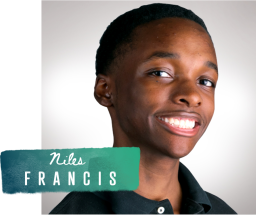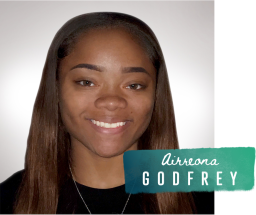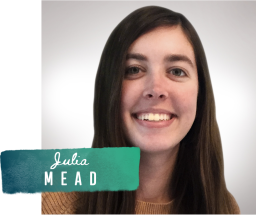As challenging as the pandemic has been for students across the country and world, they’ve shown a surprising amount of strength in persevering. Instead of succumbing to fear or helplessness, they’ve turned inward, reflected on their previous struggles, and applied those lessons to their new normal. But where does that strength come from? In the next installment of “Generation Resilient,” we asked three students to share their answers with CNN Opinion. The views expressed in this commentary are solely their own.
Niles Francis: We’re only as strong as the community around us

Covid-19 has thrown my generation a high-speed curve ball. And while we miss out on prom, senior trips, yearbook signings and formal graduations, I remind myself that I’ve faced far worse circumstances than this – and I’ve come out the other side.
When I was 9 years old, my father died of a brain tumor, forcing my mother to assume dual parenting roles. She said being a single mother was not an easy task, but she did a terrific job of providing a life for my sister and me.
Less than 10 years later, in the fall of 2018, my family lost everything we owned in a house fire. Fortunately, we were not home when the fire started, so while we lost our material belongings, we still had each other. But we also had a secret weapon – a loving and supportive community of relatives and friends who helped us start over.
From phone calls to financial support, nearly all of our relatives reached out to us to make sure that we had what we needed. Even some of my teachers stepped up, supplying clothes, toiletries, food and school supplies for my younger sister and me. A few weeks later, we found a new home and began the process of moving in and furnishing it.
Then tragedy struck again – only a month after the fire, my mother suddenly passed away from diabetes. As devastating as it was, I remain proud of my mother for taking such good care of us up until her death. I always like to say that she cared more about my sister and me than she ever did about herself.
I decided to return to school immediately. Some teachers encouraged me to take a few days off, but I knew that my mother would want me to continue my education. Of course, it was a struggle, but once again my community of friends, family and counselors came to my aid – and made sure I finished my high school education. They reminded me of important dates and deadlines, so I could complete my school work on time and not miss tests or assignments.
While I am disappointed I don’t get to celebrate this milestone with the many people who helped me get to graduation day, I also know that I can handle this curve ball – and any more that come my way. Why? Because I am fortunate enough to have a community of folks who are genuinely invested in my success, and, well, I can’t let them down. Personal tragedies couldn’t stop me; Covid-19 won’t either.
Nile Francis is a recent graduate of South Cobb High School in Austell, Georgia.
Airreona Godfrey: I found strength in the unlikeliest of places

Imagine living in a household with 10 other people and one of them gets coronavirus. Within days, nearly everyone in that house is infected, each to varying degrees of severity. It’s a frightening possibility, though in my case it also happened to become a reality.
A senior in high school, I was looking forward to celebrating all the milestones graduates do – prom, senior week celebrations, and graduation itself. Then Covid-19 interrupted my life, taking a particularly tough toll on my family.
In mid-March, my stepfather became infected with the virus. In his 40s, he struggled with fever, chills, dry mouth and body aches for several weeks, before making a full recovery. In the meantime, my oldest brother tested positive, becoming quite ill himself. Shortly after that, two of my other brothers got sick, too. Days later, my younger siblings and I began to experience flu-like symptoms, as the virus took hold of our home.
While my younger siblings and I had milder cases, we struggled to care for our parents and older brothers. Still, I kept reminding myself – it could be worse: one of them could die, and thankfully their cases weren’t nearly that severe.
Fortunately, I also did not need to panic about money. Before the pandemic, I had been juggling two paid gigs – one as an intern at Strategic Community Partners, a nonprofit working to combat inequality in Detroit, and another as a cashier at Little Caesars pizzeria.
When the pandemic began – but before my family and I got sick – my internship quickly moved to remote work, while my job at the pizzeria required me to commute to and from the store each day. My internship coordinator, aware of the risks my commute raised, offered to pay me the difference in hours for my time at Little Caesars. In other words, she’d pay me almost double so that I could avoid commuting and potentially picking up or spreading the virus to others – a wise move, considering that just weeks later my home would be its own coronavirus cluster.
My internship coordinator was not required to extend that kindness. As a nonprofit, Strategic Community Partners operates on a modest budget. But she saw the risk and chose to put whatever financial constraints might exist aside to protect my well-being and of those I might have contact with.
That show of kindness is one I believe I must pay forward, particularly as I begin my next chapter at Eastern Michigan University. And I should add that after being cooped up with my family for several months, I’m really looking forward to having my own space in college.
Airreona Godfrey is a recent graduate of Frank Cody High School in Detroit, Michigan. She plans to attend Eastern Michigan University in Ypsilanti, Michigan, this fall.
Julia Mead: Surviving Covid-19 takes a village – and a ukulele

I’m no stranger to health scares. At age 3, I was diagnosed with a brain tumor, which I beat, and 14 years later I remain tumor free. At age 13, I was diagnosed with epilepsy after having a seizure in the middle of the night, but I got the appropriate medication and continue to manage the disorder to this day.
So, when the Covid-19 pandemic began, I didn’t panic. Why? Because I’ve survived worse, and I am certain that the American people can, too. The question, of course, is how. While I cannot prescribe an answer for everyone, I can say that music has been a saving grace. I’ve been playing the ukulele for four years, and I am using this time at home to learn songs and expand my repertoire.
My mom and I are taking advantage of our Amazon Alexa, asking her to play everything from Barry Manilow to Bad Bunny, as we make dinner – a new nightly tradition. And we are even burning CDs (yes, CDs) of musicals for my grandmother, so she too can take solace in the music.
I am also fortunate to have more than just my music – I have a village of friends and family who supported me through my cancer diagnosis and are supporting me through Covid-19. Most recently, they led a car parade through my neighborhood, congratulating all the seniors on our graduation – and reminding us we haven’t been forgotten. In the absence of experiencing my high school milestones in my person, my “village” is an important reminder that I can get through even the toughest of times.
Julia Mead is a recent graduate of Indian Creek School in Crownsville, Maryland. She plans to attend Juniata College in Huntington, Pennsylvania, this fall.
